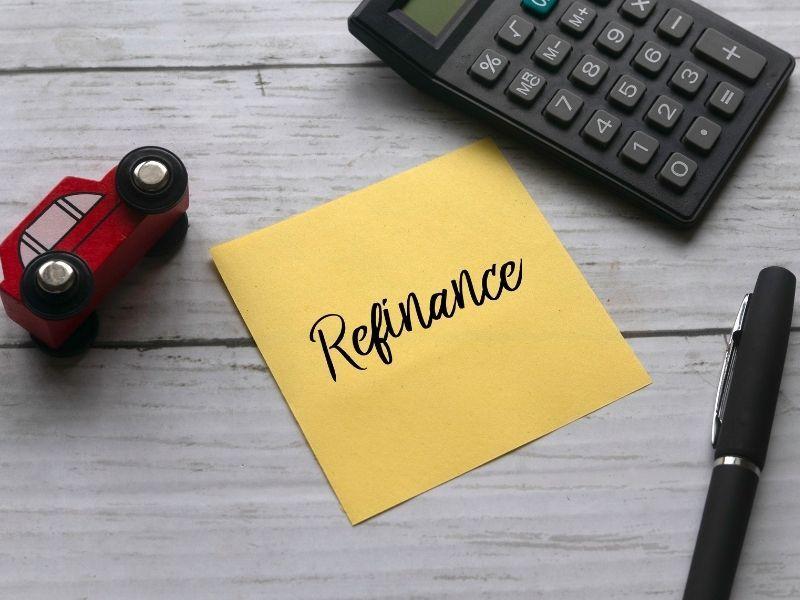
How Much Does It Cost to Refinance a Mortgage?
How much does it cost to refinance a mortgage? Learn the typical fees, what affects them, and how to decide if refinancing is worth it for you.

Refinancing your mortgage can be a smart way to lower your interest rate, reduce your monthly payments, or tap into your home’s equity. But before you move forward, it’s important to understand what it actually costs to refinance a mortgage, and whether those costs make sense for your financial goals.
Let’s walk through the typical fees, what affects the cost, and how to decide if refinancing is worth it.
What Is Mortgage Refinancing?
Refinancing means replacing your current mortgage with a new one, often with different terms. Homeowners usually refinance to:
- Lock in a lower interest rate
- Shorten the loan term
- Switch from an adjustable-rate to a fixed-rate mortgage
- Access cash through a cash-out refinance
While refinancing can lead to long-term savings, there are upfront costs to consider.
How Much Does It Cost to Refinance?
Refinancing a mortgage typically costs between 2% and 6% of your loan amount.
For example, if your mortgage balance is $300,000, expect to pay $6,000 to $18,000 in total refinancing costs.
The exact amount depends on several factors, including your lender, loan type, and location.
Common Refinance Fees
| Fee Type | Typical Range |
|---|---|
| Application Fee | $75 – $500 |
| Loan Origination Fee | 0.5% – 1% of the loan amount |
| Appraisal Fee | $300 – $600 |
| Title Search & Insurance | $400 – $900 |
| Credit Report Fee | $30 – $50 |
| Flood Certification | $15 – $25 |
| Recording Fee | $25 – $250 |
| Attorney or Closing Fees | $500 – $1,000+ (varies by state) |
Some lenders offer “no-closing-cost” refinance options, but these typically involve rolling the fees into your loan or accepting a slightly higher interest rate.
What Affects the Cost to Refinance?
Several factors impact your total refinance costs, including:
- Loan amount: Larger loans often come with higher fees.
- Credit score: Better credit can lead to lower fees and more favorable terms.
- Lender pricing: Fee structures vary from lender to lender.
- Type of refinance: Conventional, FHA, VA, or cash-out refinances may have different costs.
- Property location: State and county-specific fees can affect the bottom line.
Explore Our Mortgage Calculators
Mortgage Calculator
Easily calculate your mortgage payments with our quick and intuitive tool.
FHA Loan Calculator
Learn about FHA loans and how they can help you purchase your dream home.
VA Loan Calculator
Explore VA loan benefits designed specifically for veterans and active-duty military.
How to Tell if Refinancing Is Worth It
To determine if refinancing makes financial sense, calculate your break-even point: the time it takes for your monthly savings to cover your refinance costs.
Example:
If refinancing costs you $6,000 and saves you $200 per month:
$6,000 ÷ $200 = 30 months (or 2.5 years)
If you plan to stay in your home longer than 2.5 years, the refinance could be worth it.
Can You Refinance Without Paying Upfront Costs?
Yes, but there’s a trade-off. With a no-closing-cost refinance, the lender may:
- Roll the costs into your loan balance, or
- Charge you a slightly higher interest rate
This option can be helpful if you don’t have cash on hand, but you might pay more over time.
How to Lower Your Refinance Costs
You may be able to reduce your costs with these strategies:
- Compare multiple lenders to find the best terms and lowest fees
- Ask about lender credits (they reduce your upfront costs in exchange for a higher rate)
- Improve your credit score before applying
- See if your current lender offers discounts or loyalty benefits
- Avoid unnecessary add-ons like optional insurance products
Final Thoughts
Refinancing your mortgage can lead to significant savings, but it’s not free. Understanding the full cost helps you decide if it’s the right move.
Before committing, compare offers from several lenders, run the numbers, and consider how long you’ll stay in your home. With the right approach, refinancing can be a powerful tool to improve your long-term financial outlook.
Frequently Asked Questions
1. Can I roll refinance costs into my loan?
Yes, most lenders allow you to include closing costs in your new mortgage. This avoids upfront payments but increases your loan balance.
2. Are refinance costs tax-deductible?
Some costs, like mortgage points or interest, may be deductible. Check with a tax professional for details.
3. Will refinancing hurt my credit score?
There may be a small, temporary dip due to the credit inquiry, but your score usually rebounds quickly.
4. How long does a refinance take?
The process typically takes 30 to 45 days, but it can vary depending on the lender and your financial situation.
5. When is the best time to refinance?
The best time is when interest rates are lower than your current rate, or when you want to change your loan terms or access home equity.






